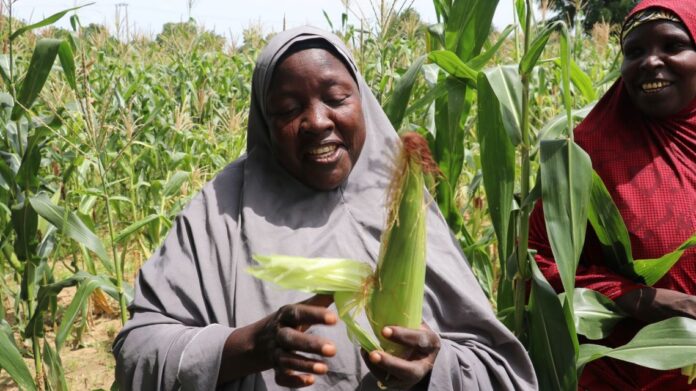Lagos, Nov. 12, 2023: The President and Chair of the Board, African Export-Import Bank (Afreximbank), Prof. Benedict Oramah, says the institution is committed to supporting women entrepreneurs and ensuring the growth of their businesses.
Oramah spoke on Saturday at a forum organised by the African Union (AU) to celebrate women as part of the official opening of the Industrialisation Week at the Intra-African Trade Fair (IATF2023) holding in Cairo, Egypt.
The IATF is organised by Afreximbank in collaboration with the AU and the Africa Continental Free Trade Area Secretariat.
Oramah said: “Afreximbank knows the importance of women.
“For those of you here who are in industrialisation, we want to remind you that you have a strong partner in Afreximbank.
“We have a variety of products that are available for you as a business.
“We operate now as a trade and budget finance supermarket for Africa, we have something for everyone.
“We have over the years tried to understand the reasons we are not making progress in industrialisation and in the pursuit of the prosperity we desire.
“So, we decided that as an institution, we should do all we can do to make sure that any business will want something and you can find it.’’
Oramah urged women to avail themselves of the diverse facilities offered by Afreximbank for them to benefit more from intra-African trade as well as get support in the industrialisation of their ventures.
“If you need advisory services, Afreximbank has it.
“If you need equity to complement what you have, so that you are able to borrow more money to support the size of project you want to fund for Export Development in Africa.
“If you are an SME and want to become a company of some size, we also have a venture fund that is managed under the fund for export development in Africa
“Of course, we have a range of wide range of trade and project financing services.’’
He also listed some of the bank’s subsidiary fund intended for small and medium-sized businesses as well as various services to include credit guarantees, investments guarantees and access to insurance.
He restated that the bank recognised the efforts of women who, generally, ensured transformation without having access to financing.
“When women set up a project, the impact is more felt and that is why we must always support them,” Oramah said.
A Senior Economist at the Economic Commission for Africa, Mr Souleymane Abdalah, advocated the integration of the gender dimension in strategies to achieve industrialisation in Africa.
Abdalah stressed the need to strengthen women’s businesses in order to give impetus to the Zlecaf which gave access to a market of 1.3 billion people.
This, he said, reinforced that about 25 per cent of women were involved in industrialisation in sub-Saharan Africa.
Earlier, Ron Omar, Acting Head of Division of Industry for Economic Development, Trade, Industry and Mining (ETTIM), AU Commission, also stressed on the need to support African women in businesses to bridge gender gaps.
Omar highlighted The African Women in Processing (AWIP) initiative aimed at addressing the gender gaps in the manufacturing sector by providing a forum for African women to exchange experiences, access new opportunities, and establish partnerships.
According to her, a session at the IATF2023 was dedicated to raising awareness about inclusive strategies and policies aimed at empowering women in processing to transition into entrepreneurship.
She said that mechanisms to create a supportive entrepreneurial environment, including tools such as the Gender Equality Seal and the Call to Action for Africa and its Diaspora to invest in the continent would be discussed.
The AWIP summit aims to support the AU’s industrialisation agenda and achieve the goals of Agenda 2063 by catalysing and accelerating the transformation of industrial processing led by women.




